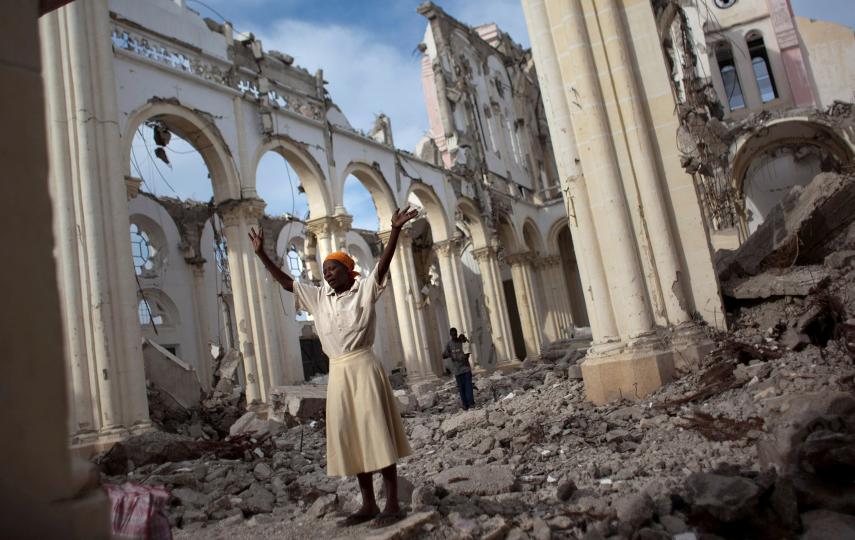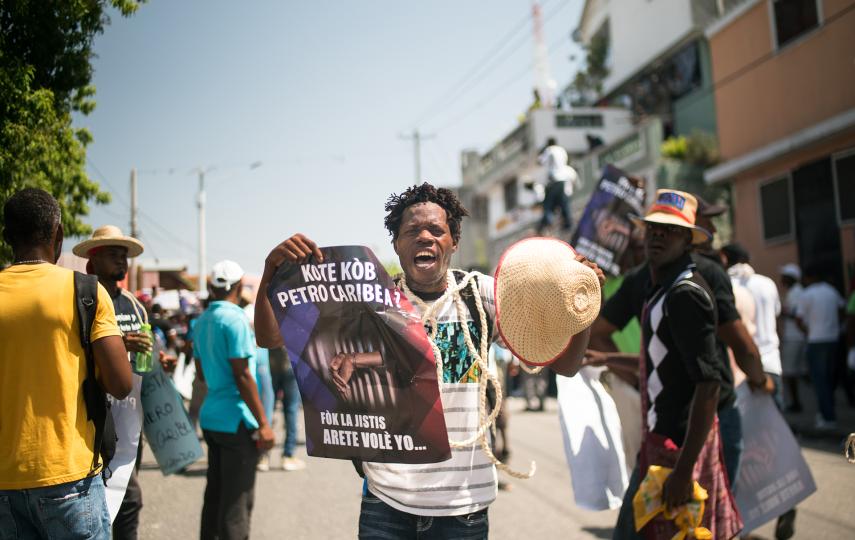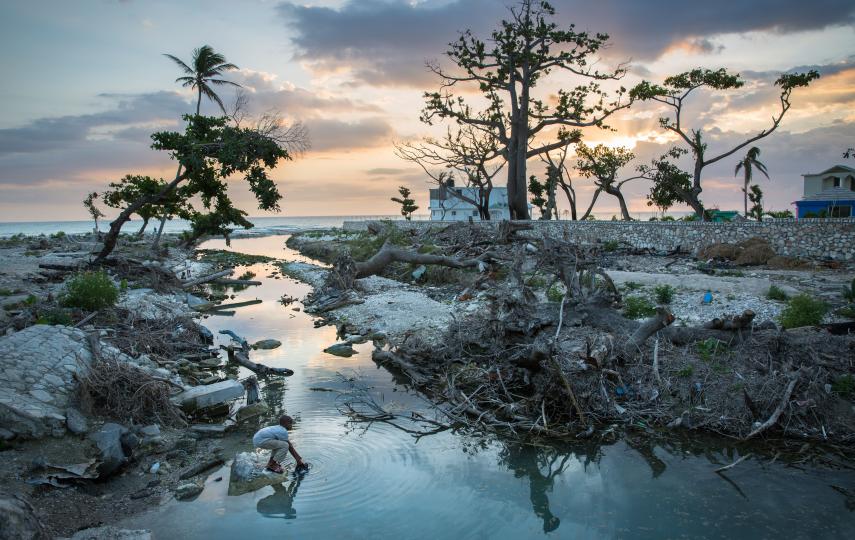The World Health Organisation declared 2020 “The International Year of the Nurse and Midwife,” marking 200 years since Florence Nightingale founded the profession. But COVID-19 has brought another reason to herald nurses around the world as heroes: their work as frontline responders fighting the spread of the virus. The global pandemic has taken the lives of at least 600 nurses.
Yet the voices of the world’s 28 million nurses, the vast majority of whom are women, often go unheard. In the U.S., for instance, nurses were not more represented in major publications in 2017 than they had been 20 years earlier – just two percent of healthcare stories included their perspectives.
In Haiti, where COVID-19 cases are quickly rising and overwhelming a fragile healthcare system, nurses have on-the-ground information about how the pandemic is playing out but little access to public platforms or policymakers to allow them to share that knowledge. As of 25 June, there were 5,847 reported cases and 104 deaths in Haiti.
“We’re close to everyone – patients, families, doctors, and other staff, so we can gather information,” said Claudia Thomas Riché, the executive director of Nursing Education Collaborative for Haiti (NECH-CIEH), and a nurse herself. This gives nurses a unique perspective on how to address a confounding new disease like COVID-19, she explained.
Yet many factors, including the subordinate roles nurses are traditionally expected to play in Haitian healthcare settings, undervalued skills, and gender bias contribute to their struggle to be heard, Thomas Riché said.
The New Humanitarian recently spoke by phone with Thomas Riché – who is helping to lead Haiti’s COVID-19 response by coordinating stronger collaboration between doctors and nurses – about caring for coronavirus patients in Haiti, the information frontline caregivers bring to the table, and efforts to ensure that information is better heard. As she notes: “We have a voice – we don’t need someone else to talk for us.”
(This interview has been edited for length and clarity.)
TNH: Can you describe the current COVID-19 situation in Haiti and the role of nurses in this crisis?
Claudia Thomas Riché: The situation is very scary and uncertain. We have limited tests, so we’re only testing those who are presenting symptoms. And because of denial and stigmatisation, people who test positive don’t want to stay in quarantine or let others know they have been tested. We see some people wearing the masks, but not everyone.
Since April, NECH-CIEH has been working with other organisations and offering two-day training sessions for doctors and nurses to work in collaboration. The only treatment is oxygen treatment because we don’t have (a) sophisticated infrastructure. We work with what we have. We refresh nurses and doctors on the capacity of oxygen and how long it will last. We have one doctor and two nurses for every 20 beds.
“Nurses are at the front lines, taking care of the patients, but people don’t consider nurses at the same level.”
Right now, we see doctors in the front, on the radio and in TV interviews, but fewer nurses are invited to talk. Nurses are at the front lines, taking care of the patients, but people don’t consider nurses at the same level. Here in Haiti, doctors get more credit for the work we do, regardless of how much was actually accomplished by the nurses.
TNH: What perspective do nurses bring that is currently missing in the media?
Thomas Riché: It’s what we do – our unique skills and knowledge. As nurses, we understand what’s going on more broadly. We’re close to everyone – patients, families, doctors, and other staff, so we can gather information. We’re with the patients 24 hours, seven days a week. We use our vision to decide how to act. That’s why we have a critical part to play. We have to work in collaboration with others in the healthcare profession. And, most importantly, we have a voice – we don’t need someone else to talk for us.
We also use language people can understand. I’m Creole and French, and I love when people talk first and I can use their words – not using the technical language but adapting the language to the patient’s and family’s ability to understand and to participate in their own treatment and care. For example, we can explain hygiene techniques in a way that people will understand.
TNH: How can nurses have a more meaningful impact in Haiti’s healthcare system?
Thomas Riché: Nurses must be part of medical decision-making. They see all stages of an illness – they see the effects of various medications and treatments. Their knowledge of the patient’s experience exceeds that of any other health professional. Particularly in places where there are few social services, nurses are the connection between the patient, the medical people, and the community resources. They are also problem-solvers, since, again in low-resource environments, they are the ones on-the-spot in crises.
Usually [those in authority positions] don’t put us at the table and say: “What do you need?” They will ask the doctors. The needs can be more directly expressed when we’re included at the tables of economic and political decisions. We need to have a stronger nursing association, in Haiti and in countries, cities, and communities around the world.
TNH: How are you working to equip nurses to take a seat at the table?
Thomas Riché: We need to talk about data. When you say how we can increase or decrease cost, people listen. People usually see us [nurses] talking with emotion – we also have data and research to change our care and impact the population’s health. We need to speak to the budget. We need to be surrounded by people to help us express our needs and have an impact.
“People usually see us [nurses] talking with emotion – we also have data and research to change our care and impact the population’s health.”
NECH-CIEH holds workshops where nurses meet with economists, psychologists, and other support personnel. They design and conduct research projects and learn to write articles for journals and present at conferences. They engage in data-driven discussions. All nurses should be involved in these activities. If financial issues need to be addressed, nurses have knowledge and data to inform those discussions.
TNH: What might COVID-19 mean for the future of the nursing profession in Haiti? Could this be a chance to create deeper change?
Thomas Riché: This is an opportunity for us. At ANILH [the National Association of Nurses and Licensed Nurses of Haiti], our nurses’ association, I can see things moving. People want change. All over the world, people are saying thank you to nurses. But that’s not enough – then you forget and move on. We need to provide nurses the best training and education. We need to invest our money in nurses and training and people have to give us our place – in the Ministry of Health, government, and universities. We need to allocate for the salaries that nurses deserve as healthcare professionals. If you don’t, who is going to take care of you? When you have good nurses, you survive.
sc-agu-js-pd






